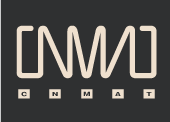68
Why do we create art and what do we expect it to do? This is the question posed in 68. In the beginning we witness the creative act: a poet, writing and speaking out the earliest fragments of his poems; discovering through experiment his voice, both physically and figuratively. It alludes to Isidore Isou, a romanian-born poet who, in 1942, at the age of 17, moved to Paris and wrote a manifesto on ‘lettrisme’, sparking a movement. With each creative moment, our poet’s own energy and imagination are embodied in the actions of the percussion, violoncelle, and the mise-en-scene.
But what of society? What of government? Our poet realizes that his artistic actions have no way of changing society unless he confronts social and economic issues, at the expense of artistic vision. Our poet decides that his art must not simply discover and create and describe, it must enact.
Guy Debord’s Societe du Spectacle, a work whose message is as relevant today as it was leading up to Mai 68, is central to this decision. Our poet accosts us, the audience, urging us to see the spectacle for what it is, and how it is not real society.
Throughout the piece we see the works of Jacques Villegle, constantly putting the mirror to the moment- and in so doing, they make us aware of our present moment.
In addition to these comments, the big issue that I am contemplating is the fact that so many artistic opportunities are facilitated by institutions. So many of us young composers are constantly working within the walls of institutions. How can I reconcile the difference between my surroundings with my influences such as Isou and Debord who are adamantly at odds with this? My resolve was to criticize the institution from within. This line of Debord for me was particularly effective for my protagonist/poet:
(excerpt verse 189)
As all the art of the past comes to be recognized and appreciated historically, and is retrospectively reclassified as phases of a single “world art,” it is incorporated into a global disorder that can itself be seen as a sort of baroque structure at a higher level, a structure that absorbs baroque art itself along with all its possible revivals. For the first time in history the arts of all ages and civilizations can be known and accepted together, and the fact that it has become possible to collect and recollect all these art-historical memories marks the end of the world of art. In this age of museums in which artistic communication is no longer possible, all the previous expressions of art can be accepted equally, because whatever particular communication problems they may have had are eclipsed by all the present-day obstacles to communication in general.
